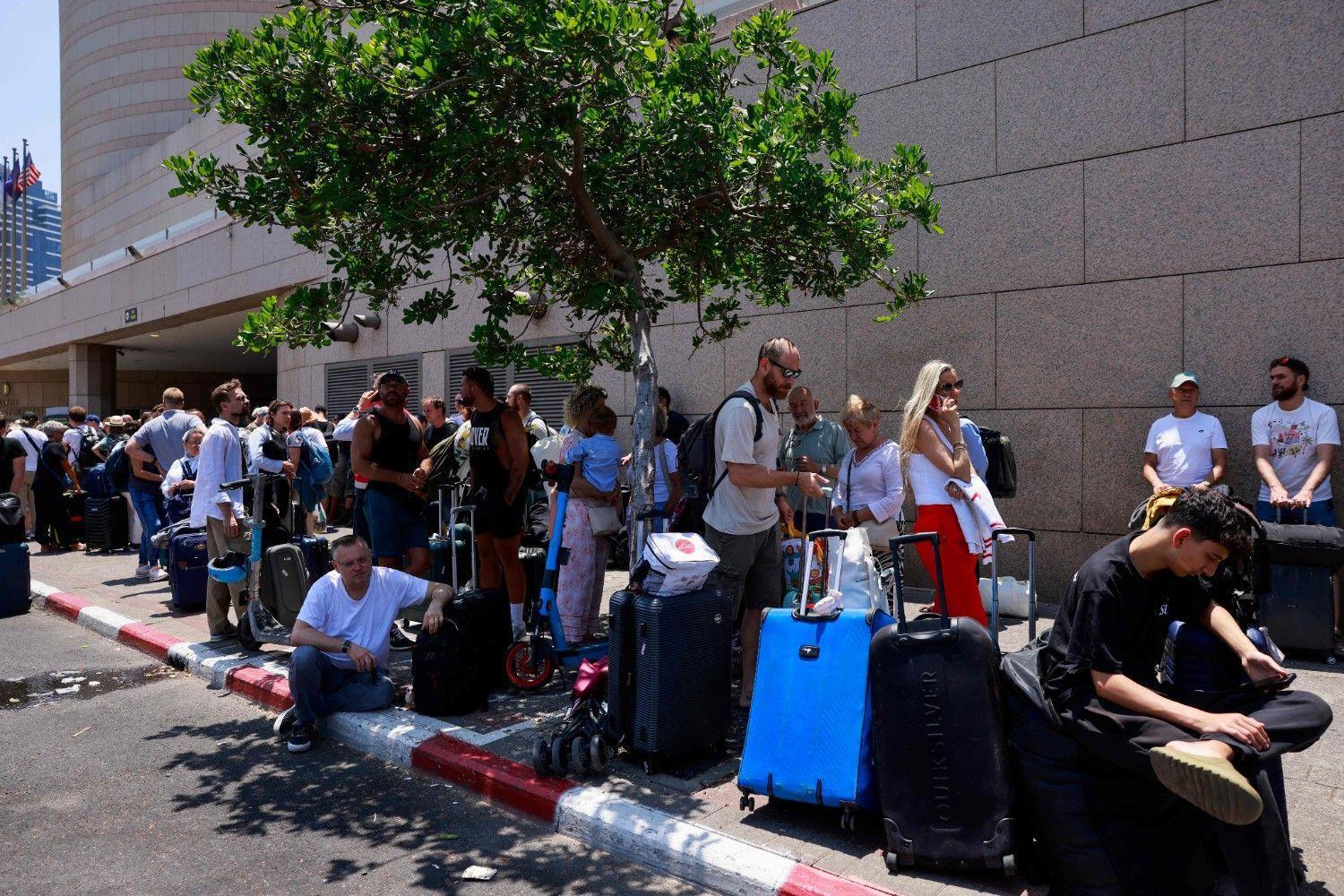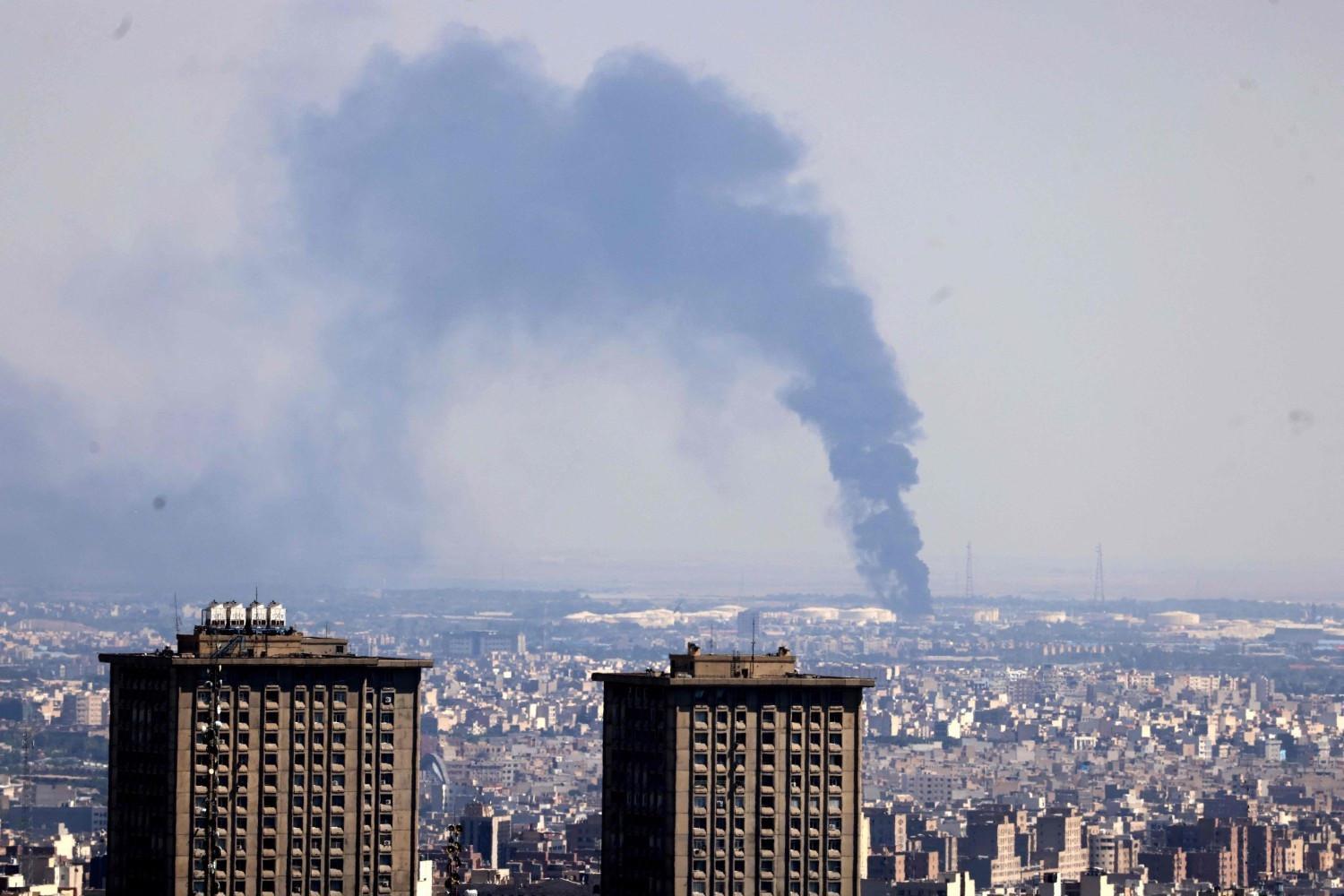Foreigners trapped in Israel, Iran as conflict rages
TEL AVIV

People arrive with their luggage before the departure of buses slated to evacuate foreign passport holders, mainly European and Polish, out of Israel, at a meeting point in Tel Aviv on June 17, 2025
Thousands of foreign nationals remain stranded in Israel and Iran as flight cancellations triggered by escalating military attacks between the rivals leave travelers scrambling for ways out, while several countries have begun limited evacuation operations.
Around 40,000 tourists are reportedly stranded within Israel, according to the country's Tourism Ministry. Many are seeking overland exits to neighboring Jordan or Egypt to catch outbound flights from there.
The U.K. government has advised against all travel to Israel and urged its citizens to register their presence and follow local guidance.
Speaking to the BBC, British nationals spoke of sleepless nights punctuated by the wail of sirens, constant trips back and forth to bomb shelters and the uncertainty of not knowing when they will be able to get home.
Many of those stranded are pressing for the government to do more to help them, but there are no plans for an evacuation at this stage, the BBC reported on June 17.
Deborah Claydon, 41, a teacher from Hertfordshire, flew to Israel last week for what was supposed to be a three-day trip to attend her cousin's wedding.
She now finds herself trapped in Herzliya on Israel's central coast with her 81-year-old mother, as missiles fly overhead.
Three hours after they returned from the wedding late on June 12, "we heard sirens and had to go to the bomb shelter," she told the BBC. "It was a trip of two halves: From elation to fear."
Iran launched drones and missiles at Israel in retaliation for Israeli strikes on military sites in Tehran. The crossfire has paralyzed commercial air traffic in the region, also stranding tourists from the U.S., Europe and Asia..
Several countries have begun repatriation operations for their citizens. The Czech Republic evacuated 66 people by plane on June 17 and announced further flights in coordination with Slovakia. Greece repatriated 105 individuals, including citizens of 15 countries ranging from Albania to the United States.
Poland said it plans to evacuate around 200 citizens in the coming days. Germany has urged nationals in both Israel and Iran to register with its online emergency system, though no evacuation flights have been announced.
Taiwan’s Foreign Ministry said it helped 14 nationals leave Israel by bus to Jordan over the weekend and plans to assist their onward travel. Italy said it evacuated dozens of its citizens from Iran by convoys routed through Azerbaijan and Türkiye. Central Asian nations including Kazakhstan and Uzbekistan also reported evacuating more than 100 nationals from Iran via Turkmenistan.
Hundreds of Pakistani nationals living in Iran arrived at the Taftan border crossing on June 18 as they sought safe passage back to Pakistan.
Meanwhile, the first aircraft of Israel’s “Operation Safe Return” landed early on June 18 at Ben Gurion Airport, carrying Israeli citizens home from Larnaca in Greek Cyprus. Authorities estimate up to 150,000 Israelis have been stuck abroad due to widespread flight disruptions.
















